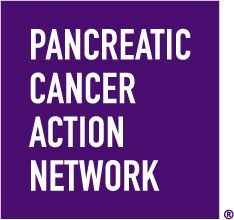- About Us
- Advertise / Support
- Editorial Board
- Contact Us
- CancerNetwork.com
- TargetedOnc.com
- OncLive.com
- OncNursingNews.com
- Terms & Conditions
- Privacy
- Do Not Sell My Information
- Washington My Health My Data
© 2025 MJH Life Sciences™ and CURE - Oncology & Cancer News for Patients & Caregivers. All rights reserved.
How to Navigate Pancreatic Cancer Resources
Receiving a pancreatic cancer diagnosis can stop a family in their tracks. Not only must patients and their loved ones navigate the emotional impact, but they are often asked to make quick treatment decisions. Attempting to learn and process large amounts of complex information can leave anyone feeling lost.
So where should you turn? Start with Patient Central.
The Pancreatic Cancer Action Network’s Patient Central is the first place to call after a diagnosis of pancreatic cancer or at any point in your journey. Patient Central Associates can help provide information for any question you have about pancreatic cancer. An Associate can also help you navigate the most critical decisions you’ll need to make to:
- Find a pancreatic cancer specialist to get a proper diagnosis and treatment Seeing pancreatic cancer specialists, physicians who diagnose and treat a high volume of pancreatic cancer patients, improves outcomes. The Pancreatic Cancer Action Network (PanCAN) strongly recommends you consult with pancreatic cancer specialists who have experience diagnosing and treating the disease.
- Understand all your treatment options and know which may work best for you Every pancreatic tumor is different. PanCAN strongly recommends molecular profiling of your tumor to help determine the best treatment options.
- Consider clinical trials during each treatment decision, including at diagnosis Pancreatic cancer patients who participate in clinical research have better outcomes. Every treatment available today was approved through a clinical trial. PanCAN strongly recommends clinical trials at diagnosis and during every treatment decision.
- Maintain good quality of life Seeing healthcare professionals who focus on symptom management and supportive (palliative) care improves outcomes and is critical for your quality of life. PanCAN strongly recommends that symptom management and supportive (palliative) care should be provided early in your diagnosis as well as during and after treatment. Good nutritional care also improves outcomes and is critical for your quality of life. PanCAN strongly recommends that patients have access to pancreatic enzymes and see a registered dietitian.
- Connect with support resources like PanCAN’s Survivor and Caregiver Network Support for the pancreatic cancer patient is critical to improve quality of life and overall well-being. Having a support system of caregivers, family, friends, healthcare professionals and a Patient Central Associate is important to address and manage the needs of the patient.
Contact Patient Central for personalized, one-to-one support from an Associate. All information and services are provided free of charge because of the philanthropy of generous friends.
This article was originally published by the Pancreatic Cancer Action Network. It is republished with permission.
Related Content:



